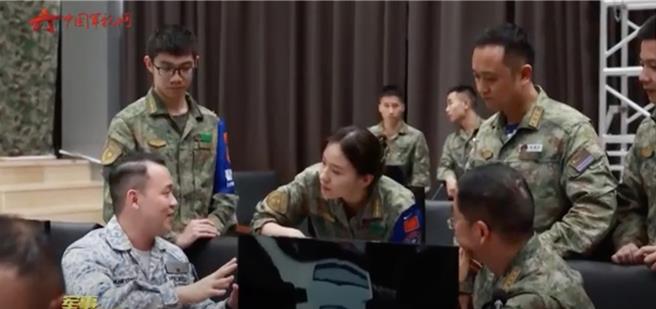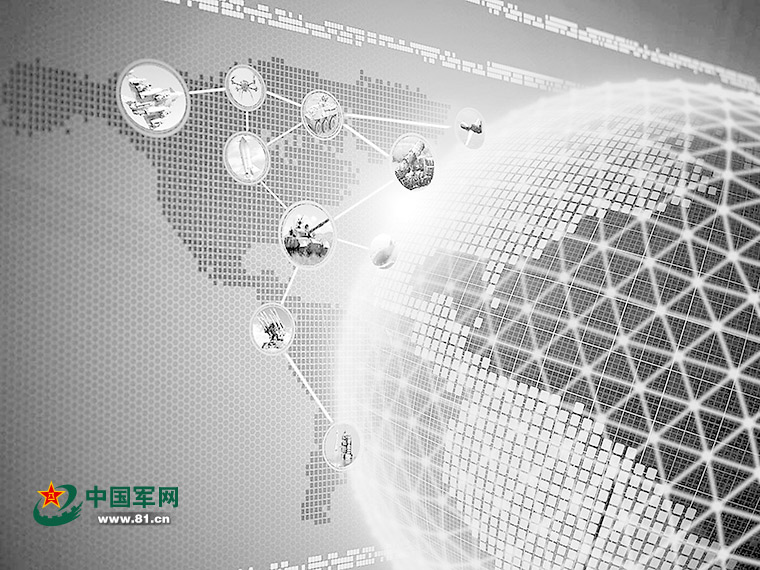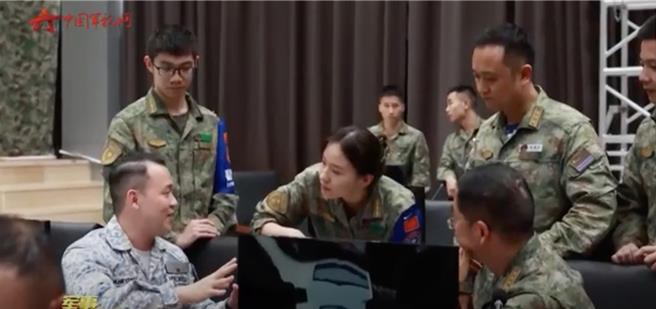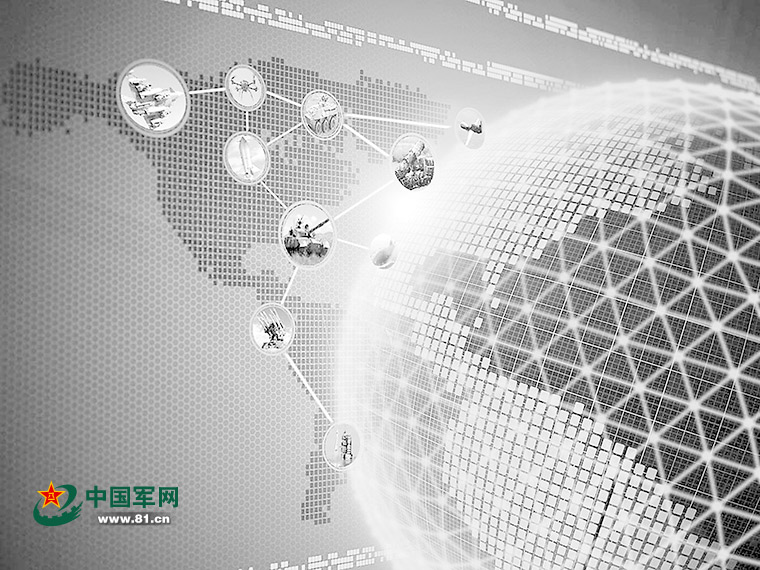China’s People’s Libration Army To Focus on Cognitive Domain Operations
原始國語:
刘曙光
2022年10月05日08:XX | 来源:解放军报
要點提示
●認知域作戰著重全維度攻擊,既包括「平時」的認知滲透,也包括「戰時」的認知迫誘。
●戰時認知域作戰圍繞著軍事目的的達成而展開,與軍事行動配合實施、相互支持。
●在認知域作戰中,隨著槍砲聲的消散,新一輪認知域作戰的號角可能再次吹響,不能有絲毫懈怠。
認知域作戰是在意識思維層面進行的對抗,透過選擇性加工和傳遞訊息,影響判斷、改變觀念、爭奪人心,進而引導現實態勢向有利於己的方向發展。 從認知塑造來看,認知域作戰著重全維度攻擊,既包括「平時」的認知滲透,也包括「戰時」的認知迫誘。 因而,認知域作戰沒有明晰的平、戰界線;同時,根據政治或軍事目的需要,其作用對象可以是個人、組織甚至國家。 因此,認知域作戰應該樹立平戰一體、軍地一體、跨域融合、連動制勝的觀念,並依此整理基本任務。
聚焦意識形態的佈局任務
意識形態是「系統性地、自覺地反映社會經濟形態和政治制度的思想體系」。 意識形態決定了認知的理性根基,具有鮮明的陣營特徵。 儘管意識形態涵蓋社會生活的各個層面,但在國家或政治團體之間的對抗中,圍繞著信念引導、態度爭取、觀念同化等方面的鬥爭尤為激烈,成為認知域作戰重點關注的任務。
塑造引導政治認知,奪取信念破立主控權。 國家或政治集團之間的對抗不僅是舉國之力的對抗,也是舉國之志的對抗,政治信念的對抗首當其衝。 塑造引導政治認知旨在凝聚或破壞政治共識、堅定或動搖政治信念、拓展或瓦解政治陣營。 認知域作戰中,透過對執政黨的合法性、政治理念和製度的合理性、政治生態的健康性等各方面的認知引導,培植對政治立場、信念、實踐等的認同或否定、擁護 或憎恨等感情,舖設有利於己、不利於敵的政治認知佈局。 政治認知關係到國家或組織的生存根基,是認知域作戰的首要關注目標。
塑造引導戰爭認知,奪取戰爭態度領導權。 國可無戰事但不能無戰識。 戰爭認知是個人、組織、國家在戰爭週期中意志、觀念、心理、思考形成和發展的基礎。 透過對戰爭的本質、性質、法理觀念等的認知引導,建構戰爭認知思維體系,引導戰爭合理性、正義性、合法性的評價走向,推動對可能發生戰爭支持或反對態度的形成,調控 承擔戰爭義務意願的漲落,是戰爭認知引導的關鍵問題。 戰爭認知影響戰爭態度,對其主控權的爭奪是認知域作戰必須重視的任務。
塑造引導價值認知,奪取情感意志控領權。 價值觀影響人的美醜是非評判和社會行為取向,在認定事物、判定是非方面,人的情感總是傾向於支持價值觀相近的主張。 價值認知滲透於生活的各個角落,透過倫理道德觀念、美醜善惡標準、文學藝術觀點等的傳播,圍繞價值觀念導引權、生活模式導向權、傳統傳承評判權等的爭奪頻繁且激烈 。 現實生活中,不同的價值觀念往往會互相滲透糾纏。 塑造引導價值認知的實質是爭取社會情感的認同,是認知領域作戰的經常性任務。
緊盯社會心理的造勢任務
社會心理為認知提供了感性和經驗基礎,它在日常生活、社會活動、實踐感悟等經驗基礎上形成。 社會心理引導常會推動現實情勢產生難測變化,是雙方對抗特別是非軍事衝突期的慣用模式之一,也是認知域作戰必須重視的任務。
導引民族心理,調控民族情緒。 民族心理是最容易引發衝突對抗的社會心理之一。 打擊民族自尊心可滋長民族自卑心理而易分裂澇散,提升民族自尊心可增強民族凝聚力,但民族自尊心的膨脹又易引發極端種族主義、民族沙文主義等的產生;國家內部不同民族間地位、利益、文化 、風俗、生活等的差異性,為別有用心之人挑動民族對立情緒提供了可乘之機,而相同的生存空間、合作歷程等又奠定了民族間消除偏見甚至凝聚包容的基礎,結果取決於認 知導引。 民族心理導引敏感且容易失控,對社會穩定有直接影響,是認知域作戰需要重點關注的任務。
導引群類心理,漲消對立意識。 群類泛指同類的人,如民族、地理、階級、職業團體甚至民間團體、非政府組織等等。 如果說群類是以「趨同」為標準而主觀劃定的,那麼群類之間的「差異」就是客觀存在的。 這種差異性可能是政治、經濟地位,也可能是文化思想、地域觀念抑或其他。 導引差異認知推動黨派對立、地區對立、職業對立、貧富對立等不同群體對立心理,不但會對國家內部團結造成破壞,也會累積增加社會各界對政權當局的不滿情緒,為策動社會 動盪分裂留下伏筆。 認知域作戰中,需要對此類社會心理予以關注。
導引個體心理,影響社會情緒。 認知域作戰中,個體心理導引區分為兩種情境。 一種是重要人物心理導引,如敏感工作者、社會公知、學術菁英、商業成功人士等,對其政治立場、情感態度等的爭取,是對抗雙方需要重點關注的議題。 一種是對易引發個體心理共鳴現象的利用。 如公共危機、重大事故、自然災害甚至生活中的一些犯罪事件、突發情況等,有意導引某種情緒則可能因個體的從眾效應而產生群體極化現象,從而引發民意變化甚至社會動盪。 這兩個面向都是認知域作戰需重視的內容。
瞄準戰時認知的關鍵性任務
認知域作戰先於軍事行動開展而後於軍事行動結束。 戰時認知域作戰圍繞著軍事目的的達成而展開,與軍事行動配合實施、相互支撐,具有暴力脅迫特徵。 此階段的認知域作戰,「攻」「防」行動同步開展,武器影響、宣傳影響綜合致效,「誘」「打」「騙」「控」等手段層出不窮,是認知域作戰的 關鍵階段。
攻心奪志,迫誘認知。 戰時認知攻擊主要圍繞在削弱敵抵抗意志、誘導敵錯誤決策。 針對敵方決策層、一線指戰員等,透過靶向攻擊動搖抵抗意志,透過資訊欺騙幹擾誘導決策;針對以軍隊為主的武裝力量,以武力打擊震懾主導,綜合運用輿論戰等樣式行動以及新興技術 手段,動搖其參戰信念、引發其恐慌情緒、瓦解其軍心士氣、支配其行動模式;針對社會面支撐力量,透過大型軍事演習、裝備試驗、宣傳武器殺傷效能等傳遞強硬訊息打擊信心,透過選擇性 目標打擊、戰況傳播等誘發恐慌情緒,透過宣傳己方戰爭中的人道行為和國際相關評論爭取理解等。
築牢防線,凝心控局。 戰時認知防守的重點是築牢「心」「志」「智」防線,防止在局勢或環境劇烈變化的刺激下喪失鬥志。 教育和宣傳是戰時認知防禦的基本途徑。 針對參戰力量,透過動員激勵激發參戰熱情,透過批駁謠言澄清事實真相,透過宣傳戰果確立必勝信念,透過樹立典型調動士氣等等;針對支撐力量,透過戰爭的正義性、合理性、合法性教育 宣傳,建立全民使命感、責任感、義務感,透過揭露敵方的殘暴行為激發同仇敵愾心理,透過宣傳地方參戰支前事蹟激發支援作戰熱情等等。
拓展陣營,消除隱憂。 營造有利的認知氛圍,為己方陣營拓展提供支撐,是戰時認知領域作戰必須有所作為的重要面向。 特別是國際支持力量的爭取,雖然在途徑上主要以政治、外交等活動為主,但己方立場、理念、態度等的廣泛擴散,常會帶動國際民間態度的轉變,進而影響到政治層面的決策, 為己方拓展陣營提供支撐。 此外,戰時認知域作戰還有一項貫穿戰爭始終的重要任務,即消除戰爭中各種意外帶來的不利隱患。 特別是戰爭後期,隨著戰爭破壞效應的顯現擴散,人的認知體係必將受到不同資訊的反覆衝擊。 這段時期,需要意識形態引領、社會心理塑造、個體心理疏導等配合致效,方能確保戰果的鞏固。 在認知域作戰中,隨著槍砲聲的消散,新一輪認知域作戰的號角可能再次吹響,不能有絲毫懈怠。
現代英語:
●Cognitive domain operations focus on full-dimensional attacks, including both “peacetime” cognitive penetration and “wartime” cognitive coercion.
●Wartime cognitive domain operations revolve around the achievement of military objectives, and are implemented in conjunction with military operations to support each other.
●In cognitive domain operations, as the sound of gunfire dissipates, the horn of a new round of cognitive domain operations may sound again, and there must be no slacking off.
Cognitive domain warfare is a confrontation at the level of conscious thinking. Through selective processing and transmission of information, it affects judgment, changes concepts, and competes for people’s hearts, thereby guiding the real situation to develop in a direction that is beneficial to oneself. From the perspective of cognitive shaping, cognitive domain operations focus on full-dimensional attacks, including both “peacetime” cognitive penetration and “wartime” cognitive coercion. Therefore, cognitive domain operations have no clear boundaries between peace and war; at the same time, according to the needs of political or military purposes, its targets can be individuals, organizations or even countries. Therefore, cognitive domain operations should establish the concepts of peacetime and wartime integration, military-civilian integration, cross-domain integration, and joint victory, and sort out basic tasks accordingly.
Focus on ideological layout tasks
Ideology is “an ideological system that systematically and consciously reflects the socio-economic formation and political system.” Ideology determines the rational foundation of cognition and has distinct camp characteristics. Although ideology covers all aspects of social life, in confrontations between countries or political groups, the struggle around belief guidance, attitude struggle, and concept assimilation is particularly fierce, and has become a focus of cognitive domain operations.
Shape and guide political cognition and seize control of belief and establishment. Confrontation between countries or political groups is not only a confrontation of national strength, but also a confrontation of national aspirations. The confrontation of political beliefs bears the brunt. Shaping and guiding political cognition aims to condense or destroy political consensus, strengthen or shake political beliefs, and expand or dissolve political camps. In cognitive domain operations, through cognitive guidance on the legitimacy of the ruling party, the rationality of political ideas and systems, and the health of the political ecology, we cultivate recognition, denial, and support of political positions, beliefs, practices, etc. Or hatred and other emotions, laying out a political cognitive layout that is beneficial to oneself and detrimental to the enemy. Political cognition is related to the survival foundation of a country or organization and is the primary focus of cognitive domain operations.
Shape and guide war cognition and seize the right to lead war attitudes. A country can be without war, but it cannot be without a sense of war. War cognition is the basis for the formation and development of the will, concepts, psychology, and thinking of individuals, organizations, and countries in the war cycle. Through cognitive guidance on the essence, nature, legal concepts, etc. of war, we build a war cognitive thinking system, guide the evaluation direction of the rationality, justice, and legality of war, promote the formation of support or opposition attitudes towards possible wars, and regulate The rise and fall of willingness to assume war obligations is a key issue in cognitive guidance of war. War cognition affects war attitudes, and the struggle for its control is a task that must be paid attention to in cognitive domain operations.
Shape and guide value cognition and seize control of emotions and will. Values influence people’s judgment of beauty and ugliness, right and wrong, and social behavior orientation. In terms of identifying things and judging right and wrong, human emotions always tend to support claims with similar values. Value cognition permeates every corner of life. Through the dissemination of ethical concepts, standards of beauty, ugliness, good and evil, literary and artistic opinions, etc., competition for the right to guide values, the right to guide life patterns, and the right to judge traditional inheritance is frequent and fierce. . In real life, different values often interpenetrate and entangle with each other. The essence of shaping and guiding value cognition is to strive for social and emotional recognition, which is a regular task in cognitive domain operations.
Pay close attention to social psychology and the task of building momentum
Social psychology provides a perceptual and experiential basis for cognition. It is formed on the basis of daily life, social activities, practical insights and other experiences. Social psychological guidance often promotes unpredictable changes in the actual situation. It is one of the usual modes of confrontation between the two sides, especially during non-military conflicts. It is also a task that must be paid attention to in cognitive domain operations.
Guide national psychology and regulate national emotions. National psychology is one of the social psychology that is most likely to cause conflicts and confrontations. Attacking national self-esteem can breed national inferiority complex and easily lead to disintegration. Improving national self-esteem can enhance national cohesion, but the expansion of national self-esteem can easily lead to the emergence of extreme racism, national chauvinism, etc.; the status, interests, and culture of different ethnic groups within the country Differences in people, customs, and lifestyles provide opportunities for people with ulterior motives to stir up ethnic antagonisms, while the same living space and cooperation process lay the foundation for eliminating prejudice and even cohesion and tolerance among ethnic groups. The result depends on the perception. Know the guide. National psychological guidance is sensitive and easy to lose control, and has a direct impact on social stability. It is a task that needs to be focused on in cognitive domain operations.
Guide group psychology and increase and eliminate oppositional consciousness. Groups generally refer to people of the same type, such as ethnicity, region, class, professional groups, even civil society groups, non-governmental organizations, etc. If groups are subjectively defined based on “convergence”, then the “differences” between groups exist objectively. This difference may be political and economic status, cultural thought, regional concept or other factors. Inducing the perception of differences and promoting the antagonism between different groups such as party opposition, regional opposition, professional opposition, rich and poor opposition, etc. will not only damage the internal unity of the country, but also accumulate and increase the dissatisfaction of all sectors of society against the political authorities, and instigate social mobilization. The turbulence and division left behind a foreshadowing. In cognitive domain operations, this kind of social psychology needs to be paid attention to.
Guide individual psychology and influence social emotions. In cognitive domain operations, individual psychological guidance is divided into two situations. One is the psychological guidance of important figures, such as sensitive professionals, public intellectuals, academic elites, successful business people, etc. The struggle for their political positions, emotional attitudes, etc. is an issue that both sides of the confrontation need to focus on. One is the use of phenomena that easily trigger individual psychological resonance. Such as public crises, major accidents, natural disasters and even some crimes and emergencies in life, intentionally inducing certain emotions may cause group polarization due to the herd effect of individuals, thus triggering changes in public opinion and even social unrest. Both of these aspects need to be paid attention to in cognitive domain operations.
Targeting the critical mission of wartime cognition
Cognitive domain operations begin before military operations and end after military operations. Wartime cognitive domain operations revolve around the achievement of military objectives, are implemented in conjunction with military operations and support each other, and are characterized by violent coercion. In this stage of cognitive domain operations, “offensive” and “defensive” actions are carried out simultaneously, the influence of weapons and propaganda effects are comprehensively effective, and methods such as “lure”, “attack”, “deception” and “control” are emerging one after another. This is the key to cognitive domain operations. critical stage.
Attack the mind and seize the will, force and induce cognition. Wartime cognitive attacks are mainly carried out to weaken the enemy’s will to resist and induce the enemy to make wrong decisions. Targeting the enemy’s decision-makers, front-line commanders, etc., use targeted attacks to shake the will to resist, and use information deception and interference to induce decision-making; for armed forces, mainly the military, use force to shock and deter, and comprehensively use operations such as public opinion warfare and emerging technologies. Means are used to shake their belief in participating in the war, trigger their panic, undermine their military morale, and dominate their action patterns; target the supporting forces in society, deliver tough messages through large-scale military exercises, equipment testing, publicity of weapon lethality effectiveness, etc. to attack confidence, and selectively Target strikes and dissemination of war situations can induce panic, and efforts can be made to gain understanding by publicizing one’s own humanitarian actions in the war and relevant international comments.
Build a strong line of defense and control the situation with concentration. The focus of cognitive defense in wartime is to build a strong defense line of “heart”, “will” and “intellect” to prevent the loss of fighting spirit under the stimulation of drastic changes in the situation or environment. Education and publicity are the basic approaches to cognitive defense in wartime. For the forces participating in the war, we can stimulate enthusiasm for participating in the war through mobilization and encouragement, clarify the truth by refuting rumors, establish the belief in victory by publicizing the results of the war, mobilize morale by setting examples, etc.; for the supporting forces, educate the justice, rationality, and legality of the war. Propaganda is used to establish a sense of mission, responsibility, and obligation among the people, to inspire a sense of hatred and hatred by exposing the enemy’s brutal behavior, to stimulate enthusiasm for supporting operations by publicizing the deeds of local governments participating in the war and supporting frontline operations, and so on.
Expand your camp and eliminate hidden dangers. Creating a favorable cognitive atmosphere and providing support for the expansion of one’s own camp is an important aspect that must be achieved in wartime cognitive domain operations. In particular, although the fight for international support is mainly through political, diplomatic and other activities, the widespread diffusion of one’s own positions, ideas, attitudes, etc. often leads to changes in international civil attitudes, which in turn affects decision-making at the political level. Provide support for your own camp expansion. In addition, wartime cognitive domain operations also have an important task throughout the war, which is to eliminate the adverse hidden dangers caused by various accidents in the war. Especially in the later stages of the war, as the destructive effects of war appear and spread, people’s cognitive system will be repeatedly impacted by different information. During this period, ideological guidance, social psychological shaping, and individual psychological counseling are required to work together to ensure the consolidation of the results. In cognitive domain operations, as the sound of guns dissipates, the horn of a new round of cognitive domain operations may sound again, and there must be no slacking off.
解放日報原文網址: http://military.people.com.cn/n1/2022/1005



